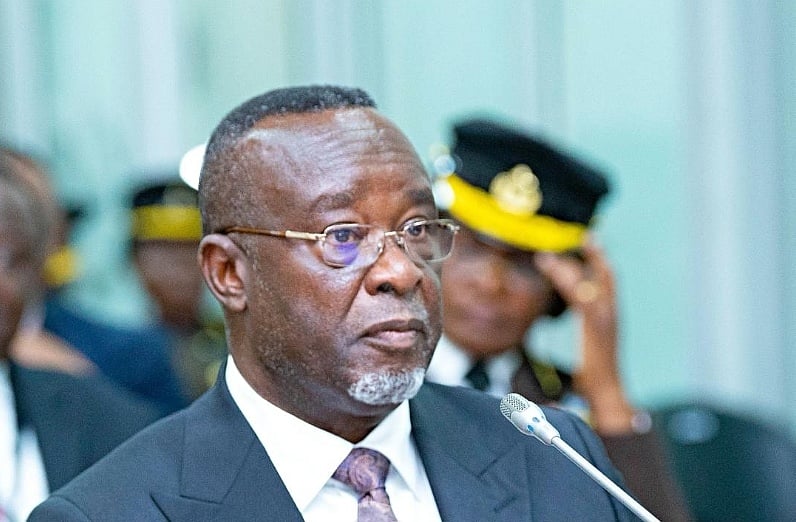
Yesterday, something historic happened in Parliament of Ghana. During his vetting, Ghana’s Chief Justice nominee, Justice Paul Baffoe-Bonnie, openly suggested that the Supreme Court could use Artificial Intelligence to randomly empanel judges for cases. Whether you agree with him or not, this proposal marks the beginning of a new national conversation about trust, transparency, and the future of judicial administration.
He did not claim expertise in AI. In fact, he admitted he was relying on people he trusts who told him such systems already exist. But what mattered was the underlying idea. Ghana’s judicial system is finally asking whether AI can reduce perceptions of bias and restore public confidence.
Let us break down what is at stake.

The Current Empaneling System in Ghana
Under Article 128(2) of the 1992 Constitution of Ghana, the Supreme Court must sit with a minimum of five Justices. In practice, the Chief Justice exercises broad discretion in selecting which Justices sit on which cases. Seniority often guides the process, but there is no codified statutory procedure. In sensitive political cases, this discretion has been criticised by academics and litigants who fear “panel-packing” or selective composition for desired outcomes.
A 2010 analysis noted that discretionary panel formation can create an appearance of bias even when no actual bias exists. The recently outgone Chief Justice, Justice Gertrude Torkornoo, faced strong public criticism over perceived bias in the way Supreme Court panels were empanelled. The outcomes of these panels led to the nickname “Unanimous FC” during her tenure and became part of the broader public conversation about transparency and trust in judicial decision-making.
During his vetting, Justice Baffoe-Bonnie also referenced past cases where concerns over panel composition created public anxiety. This has made trust in the system fragile, and it is this problem he is seeking to solve.

How Other Jurisdictions Do It
Many people assume that advanced jurisdictions have perfected this process. They have not.
In the United States federal courts, there is a popular belief that three-judge panels are randomly assigned. But research from Duke Law and Cornell Law School shows that several circuits did not follow genuinely random assignment. The assumption of neutrality was not always matched by reality.
In March 2024, the U.S. judiciary even encouraged courts to adopt stronger policies to reduce ‘judge shopping’. This means that bias concerns are not only a Ghana problem, but a universal problem. This global context makes Ghana’s current debate more timely.

The AI Innovations Proposed by Paul Baffoe-Bonnie
Paul Baffoe-Bonnie introduced several reformation proposals for Ghana’s Supreme Court. Amongst these included:
- Using AI for Panel Assignment: He suggested deploying an AI system to randomly empanel judges. He told Parliament: “We should be able to consider empanelling an AI panel of judges. AI will be a very good thing for empanelling.” The idea is to enhance fairness and transparency by using algorithmic randomisation instead of purely human discretion.
- Over-Assignment to Allow for Judge Availability Issues: Recognising real world constraints, he proposed that the AI might assign more judges than strictly needed to a panel, so that if one judge withdraws at short notice (due to illness or emergency), the panel remains intact and whistle-blowing on bias is reduced. This is a practical solution to the unpredictability of human availability.
- Benchmarking Against Bias in Current System: He juxtaposed the AI approach with Ghana’s current system, where seniority and human discretion govern panel selection. His point is that the current system “raises questions of bias and favouritism,” and a transparent AI mechanism could restore trust.
- Procedural Reform Tied to AI: In his response, he also promised broader rule reform: updating outdated procedural rules (for example, rules requiring personal service despite electronic options) so that the courts are not only fairer but faster. The AI proposal was, therefore, part of a bigger modernisation agenda.
Key Takeaways and Risks
- Moving to AI-based paneling is ambitious for Ghana, and it could lead to greater impartiality provided governance, auditing, and transparency are embedded.
- It addresses core concerns: bias, panel-packing, public trust, and disproportionate discretion.
- However, it raises new challenges: algorithmic transparency, data fairness, audit trails, and how to handle exceptions such as system error.
- Implementation will require governance safeguards: who programmes the AI, how its outcomes are audited, how randomness is verified, and how human recourse is maintained.
Why This Matter for Ghana and Africa
Ghana’s Supreme Court, navigating AI‐assisted panelling, could set a precedent for the continent. Instead of importing systems from developed jurisdictions, Ghana has a chance to design a home‐grown hybrid: algorithmic assignment infused with African legal traditions of fairness, community involvement, and oversight. The time to shape this future is now.
Copied








